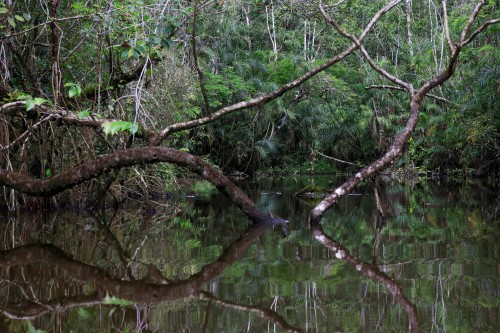By Virginia Furness
LONDON (Reuters) – Ecuador has completed its second debt-for-nature swap, this time unlocking $460 million to protect and manage the forests and wetlands of its Amazon rainforest, NGO The Nature Conservancy said on Tuesday.
By buying-back over $1.5 billion of its discounted existing bonds with cheaper new money, Ecuador will realise almost half a billion dollars of savings over a 17-year period to invest in conserving the terrestrial and freshwater ecosystems of the Amazon.
The Amazon Biocorridor Program aims to improve the management of 4.6 million hectares (11.37 million acres) of existing protected areas while protecting an additional 1.8 million hectares of forests and wetlands.
The plan is also to protect 18,000 km (11,185 miles) of rivers, bolster climate resilience and support human wellbeing, TNC said.
Debt-for-nature swaps aim to create a stable and long-term funding stream for conservation projects by freeing up money governments would otherwise have spent on debt servicing and repayment costs over the life of their outstanding debt.
This deal is expected to generate $23.5 million per year over 17 years with $19 million annually going directly to the Amazon Biocorridor Program and $4.5 million invested via an endowment fund to generate returns.
It is also reducing Ecuador’s debt stock by $527 million, freeing up $800 million in net fiscal savings for the country by 2035, based on changes to Ecuador’s repayment costs and profile, and the repurchase of the debt, TNC said.
“Through innovative mechanisms in financing and conservation, this program places the Amazon at the centre of a transformative vision that … protects one of the most biodiverse ecosystems on the planet,” said Inés Manzano, Minister of Environment for Ecuador.
The conservation program and financing package were designed by TNC along with the government of Ecuador. It involved a new $1 billion 6.034% 2042 bond arranged by Bank of America which came with $1 billion of political risk insurance from DFC and a $155 million partial credit liquidity guarantee from the Inter-American Development Bank (IDB).
“This is refinancing done right,” research firm Tellimer said in a note, adding that by combining credit guarantees for the new debt and focusing on retiring the most discounted bonds rather than its shorter-dated by higher-priced debt, Ecuador was able to maximise its savings.
Ecuador opened its offer to investors to buy-back existing bonds on Dec. 3. Investors offered up $7.6 billion of bonds and the government accepted $1.53 billion on Dec. 10, according to a stock exchange filing.
(Reporting by Virginia Furness; Editing by Sandra Maler)



